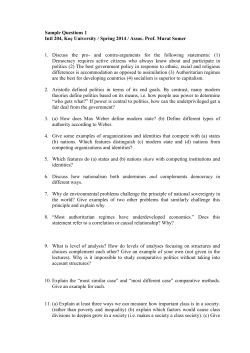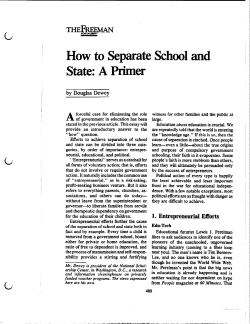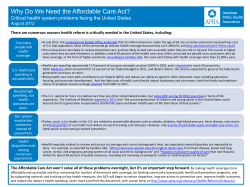
PFM
PFM Projects and activities • Consolidation and development of Know how – Develop and revise training curricula – Strengthen FPT standard • Participative and political FPT • Functional areas and budgeting – Develop functional area program • Guidance on post territorial reform for FA – FA Programme and Budgeting • National level support on budgeting post territorial reform – Inter LGU strategic planning • Contribution in policy making – Thematic evaluation of PFM practices and policy recommendations – Function allocation – Provision of advice and technical expertise on Law on Public Finances process Develop training curricula on BEE • Develop training curricula on BEE – Coaching of 3 LGU • Revise training curricula on BEE • Revise SDPeMTBP • Wsh to validate BEE training curricula and the revisions of the old ones Develop training curricula on BEE Expected results and indicators • 1 new training curricula on BEE • 3 revised curricula part of national government programme on training delivery • No. of LGUs applying means (e-gov) for transparency and accountability in services and decision making Methodology and approach Good practices, coaching, combining national and international expertise Involved stakeholders • MoF • LGUs in old area • National and International expertise Beneficiaries • MoF • Albanian Training Institutions Time frame July 2014 – December 2015 Strengthen FPT standard • Regional Trainings on FPT standards in collaboration • Help desk on FPT standards • Regional Trainings on FPT standards in collaboration with MoF • Training of assuring FPT standards in de-concentrated agencies Strengthen FPT standard Expected results and • LGUs in new area of intervention apply Financial indicators Planning Tool (FPT) linked with Strategic Development Plans (SDP) Medium Term Budget Programmes • Local councils , prefectures, treasuries at local and regional level are capacitated to implement PFM standards Methodology and approach Replication, peer exchange, practical expertise, trainings, up date and dissemination Involved stakeholders • MoF • Training institutions • National expertise Beneficiaries • De- concetrated Agencies in old area of intervention • LGUs in new area of intervention Time frame July 2014 – December 2015 Develop functional area program • Develop functional area program: add organizational support in case of territorial reform • Guide on organizational development and strategic planning budget preparation after the territorial reform • Link FTP with decision making and annual budget process: good practices on budget comprehensiveness and fiscal package • Budget comprehensiveness: Why and How paper recommendations for budget instructions • Instructions on MTBP and budget process in amalgamated LGUs: model of an annual budget and MTBP Develop functional area program Expected results and indicators • 1 horizontally harmonized strategic planning socially sensitive (Why and how paper InterLGU strategic planning and budget process in amalgamated LGUs) • 2 Good practices in budget comprehensiveness out of which at least 1 are integrated in national and local instructions (recommendations for budget instructions) • Why and how paper in organizational consolidation after territorial reform • MoSLI capacitated with guidance on organizational development and funding on post territorial reform conditions (in coordination with PLGP) Methodology and approach Working simultaneously at local and regional level, coaching, good practises, interLGU schemes, participation Involved stakeholders • MoF • LGUs in Shkodra Region and Lezha Region • National and International experts Beneficiaries • LGUs in Shkodra Region and Lezha Region • MoSLI Time frame July 2014 – December 2015 Participative and political FPT • Link FTP with decision making and annual budget process: good practices on annual budget and role of councils • Guide for council members on agglomerated budget • Trainings of financial commission (council members) assuring PFM standards • Build a web platform for council members reporting and consulting • Role of Financial Commission and Community in ex ante budget analyses (annual and medium term): web model Participative and political FPT Expected results and indicators • 1 InterLGU strategic planning socially sensitive (Guide for council members on agglomerated budget) • 2 Good practices in annual budget and role of councils • Local councils , prefectures, treasuries at local and regional level are capacitated to implement PFM standards Methodology and approach Working simultaneously at local and regional level, coaching, good practises, interLGU schemes, inclusion Involved stakeholders • • • • Beneficiaries • LGUs in Shkodra Region and Lezha Region • Counsel members of LGUS Time frame July 2014 – December 2015 MoF, MoSLI LGUs in Shkodra Region and Lezha Region Counsel members of LGUS De concentrated agencies, all local actors involved in the SDP elaboration process • National and International experts FA programme and Budgeting • Develop functional area program: additional organizational support in case of territorial reform (1 Model of FA programme – M. Madhe) • Instructions on MTBP and budget process in amalgamated LGUs: model of an annual budget and MTBP FA programme and Budgeting Expected results and indicators • horizontally harmonized strategic planning socially sensitive (Why and how paper InterLGU strategic planning and budget process in amalgamated LGUs and recommendations for budget instructions) Methodology and approach Working simultaneously at local and regional level, coaching, good practises, interLGU schemes, inclusion and participation Involved stakeholders • MoF • LGUs in Shkodra Region and Lezha Region • National and International experts Beneficiaries • LGUs in Shkodra Region and Lezha Region • MoSLI Time frame July 2014 – December 2015 Inter LGU strategic planning • ‘Why and how” paper on inter LGU strategic planning • Wsh with national level in adopting guidance on organizational development and strategic planning and budget preparation (post territorial reform) Inter LGU strategic planning Expected results and indicators • “why and how” paper on regional development (implications of territorial reform and decentralization in the services) • MoSLI and DSDC capacitated with a harmonized monitoring instruments of decentralization strategy (in coordination with PLGP) • MoSLI capacitated with guidance on organizational development and funding on post territorial reform conditions (in coordination with PLGP) • MoSLI and ASPA enabled with know-how to support LGU-s on territorial reform post conditions Methodology and approach • Working simultaneously at local and regional level, good practises, interLGU schemes, validation wsh Involved stakeholders • LGUs at national level • De concentrated agencies, all local actors involved in the SDP elaboration process • National and International experts Beneficiaries • MoSLI, DSDC, ASPA Time frame July 2014 – December 2015 Thematic evaluation of PFM practices and policy recommendations • Thematic evaluation of PFM practices and policy recommendations • WSH on validating 6 good practices • WSH in national level for dissemination of document Thematic evaluation of PFM practices and policy recommendations Thematic evaluation of PFM practices and policy recommendations Expected results indicators • Why and how” paper on regional development (implications of territorial reform and decentralization in the services) • Good practices are developed on PFM out of which at least 1 is integrated in national and local instructions • MoSLI capacitated with guidance on organizational development and funding on post territorial reform conditions (in coordination with PLGP) • MoSLI and ASPA enabled with know-how to support LGU-s on territorial reform post conditions Good practices, combining national and international expertise, consultations and validation wsh Involved stakeholders • MoF • LGUs at national level • National and International experts Beneficiaries • MoSLI Time frame July 2014 – December 2015 Function allocation • “Why and How” paper on function allocation supporting cost optimization (on local services) • Training on methodology for function (re)allocation • WSH in national level for dissemination of functional allocation supporting cost optimization Function allocation Expected results indicators • 1 “why and how” paper on regional developmentimplications of territorial reform and decentralization in the services (“Why and How” paper on function allocation supporting cost optimization (on local services) • MoSLI capacitated with guidance on organizational development and funding on post territorial reform conditions (in coordination with PLGP) • MoSLI and ASPA enabled with know-how to support LGUs on territorial reform post conditions Methodology and approach Good practices, combining national and international expertise, consultations and validation wsh Involved stakeholders • • • • Beneficiaries • MoF • MoSLI Time frame July 2014 – December 2015 LGUs at national level De concentrated Agencies Line ministries National and International experts Provision of advice and technical expertise on Law on Public Finances process • Technical assistance on Law on Public Finances (principals) • Validation WSH on new laws on finances Institutional support Expected results indicators • 1 proposal for amendments of sub-legal acts in PFM is made Methodology and approach Good practices, combining national and international expertise, consultations and validation wsh Involved stakeholders • • • • • • Beneficiaries • MoF Time frame October 2014 – December 2015 MoF MoSLI Other line ministries Members of Parliament LGUs at national level National and International experts
© Copyright 2025









